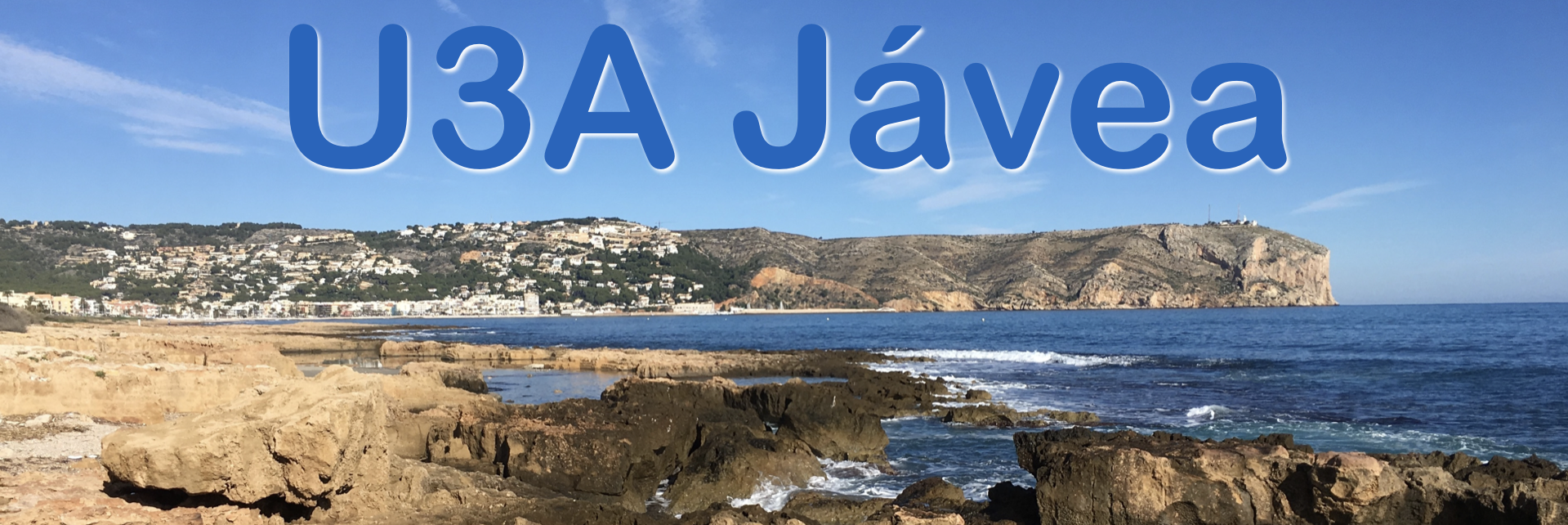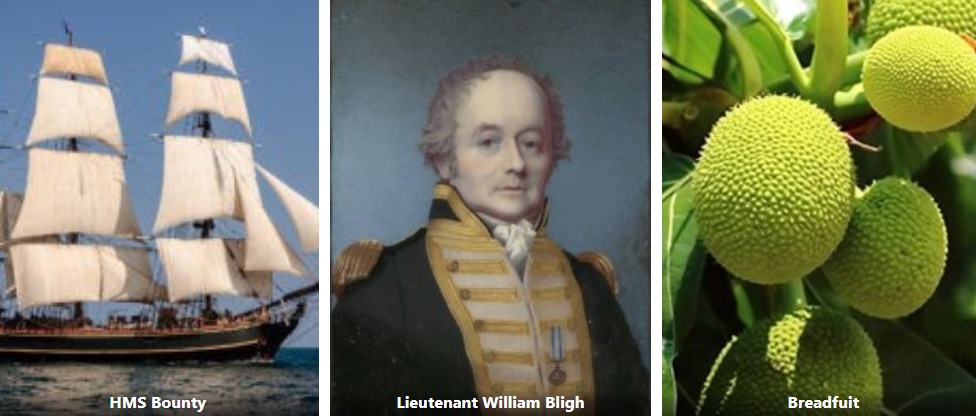
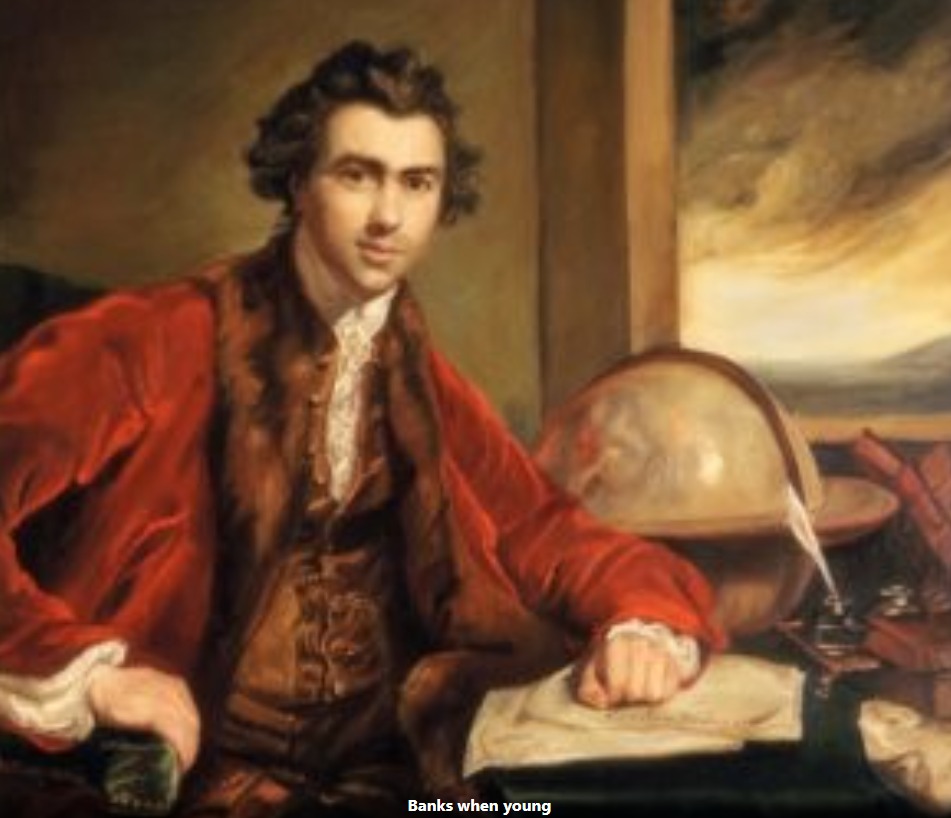
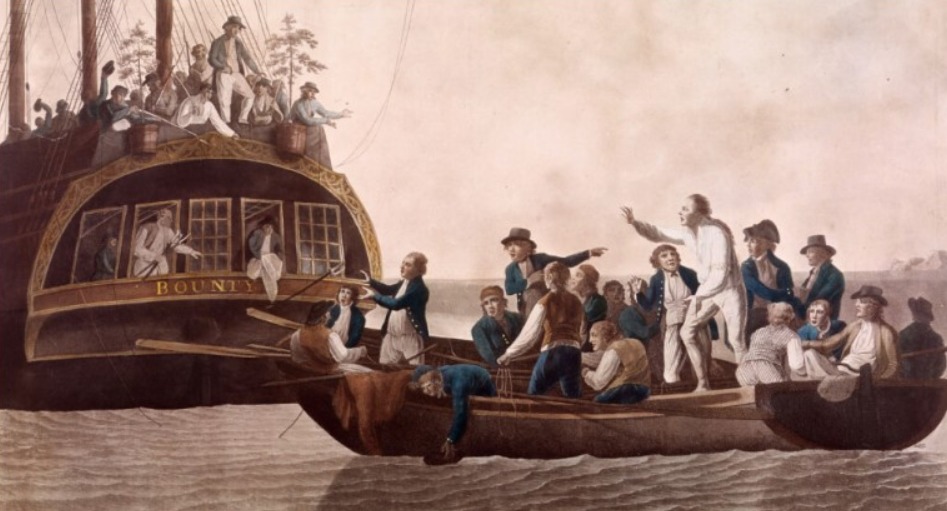
What a fascinating presentation Alan Hunton gave to members of the history group today, at the end of which Alan asked his audience, did we believe Bligh to be a hero or a villain? Members were somewhat divided in their answers, but everyone certainly agreed that we had learned so much this morning: how the British government’s interest in bread fruit as a potential source of cheap and nutritious food for slaves on the sugar plantations of the British West Indies led to King George III authorizing the botanist Joseph Banks to spearhead the breadfruit-gathering expedition. The tree had been spotted by James Cook and Joseph Banks in Tahiti in the year 1769 and it was Banks who then played a pivotal role in events that followed.
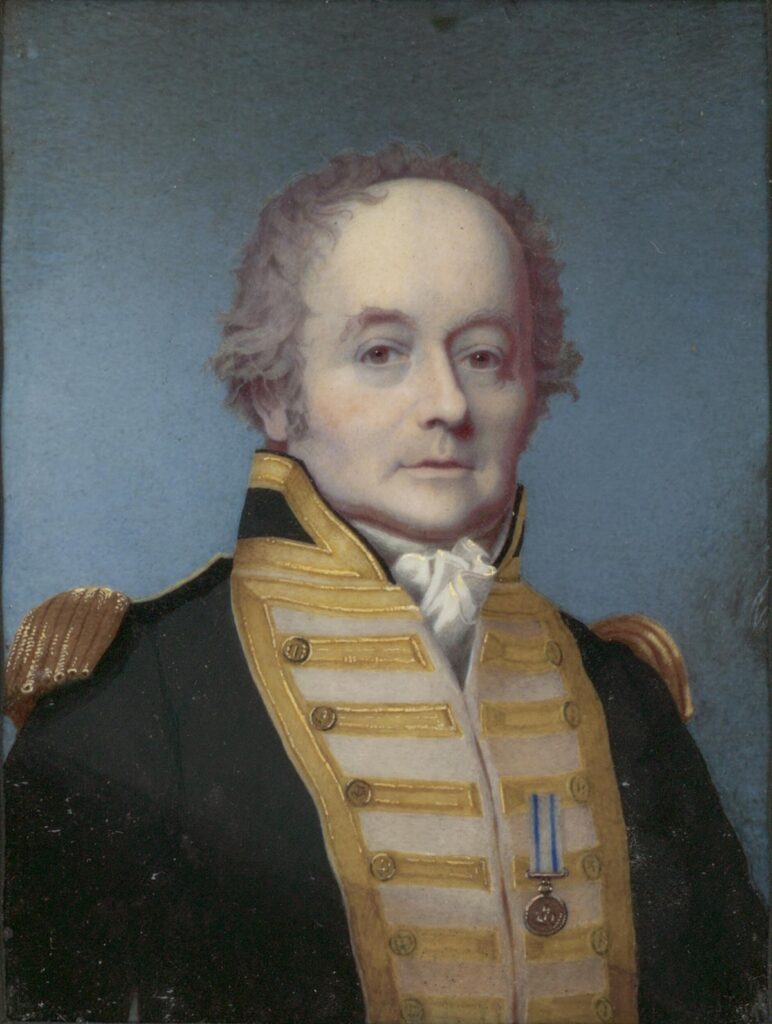
William Bligh was dispatched to Tahiti twenty years later in HMS Bounty and Alan explained the reasons why the return journey ended in mutiny. It did not end well for the mutineers but despite being cast adrift with 19 of his men to face a 7-week sea journey with very little food and water and no instruments to guide them, Bligh made it back to London. Bligh faced a court martial, but was honourably acquitted and sent back to Tahiti to finish his task. Bligh was court martialled twice again during his career, being acquitted both times, finally achieving the rank of Vice-Admiral.
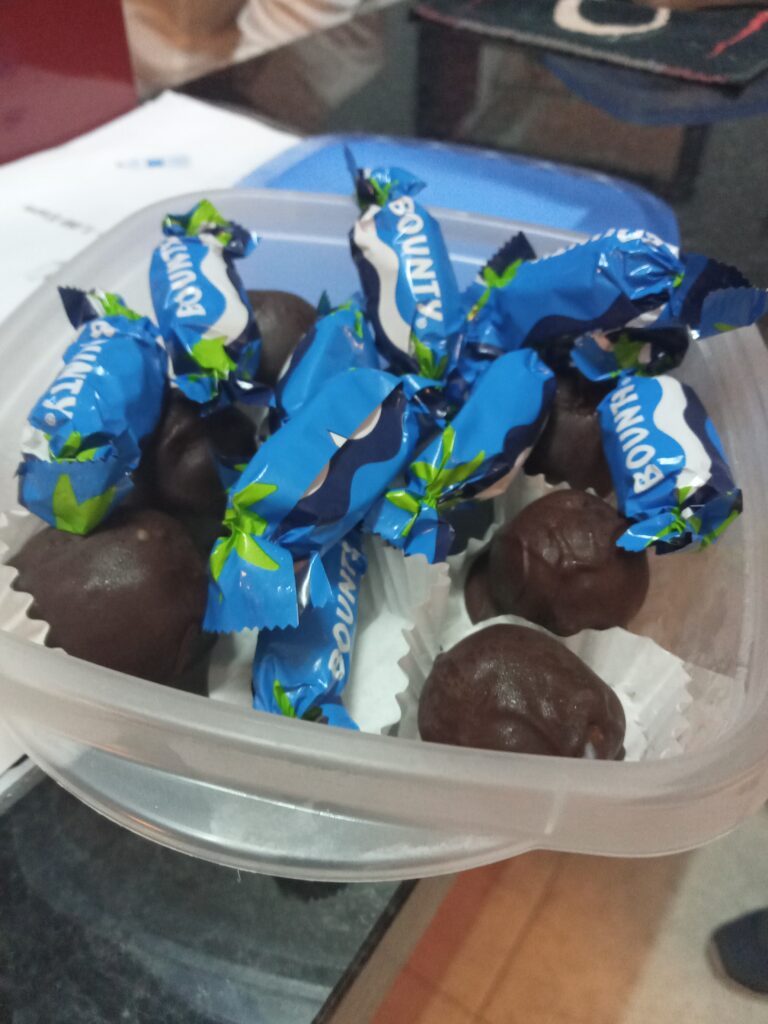
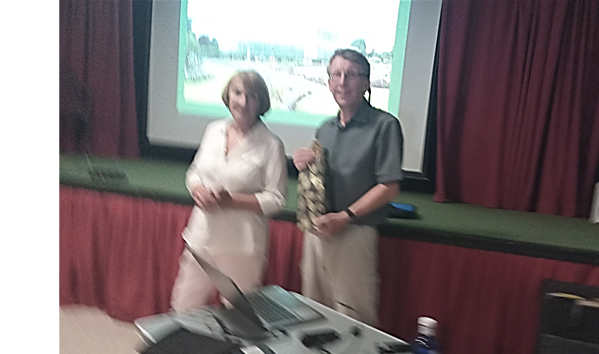
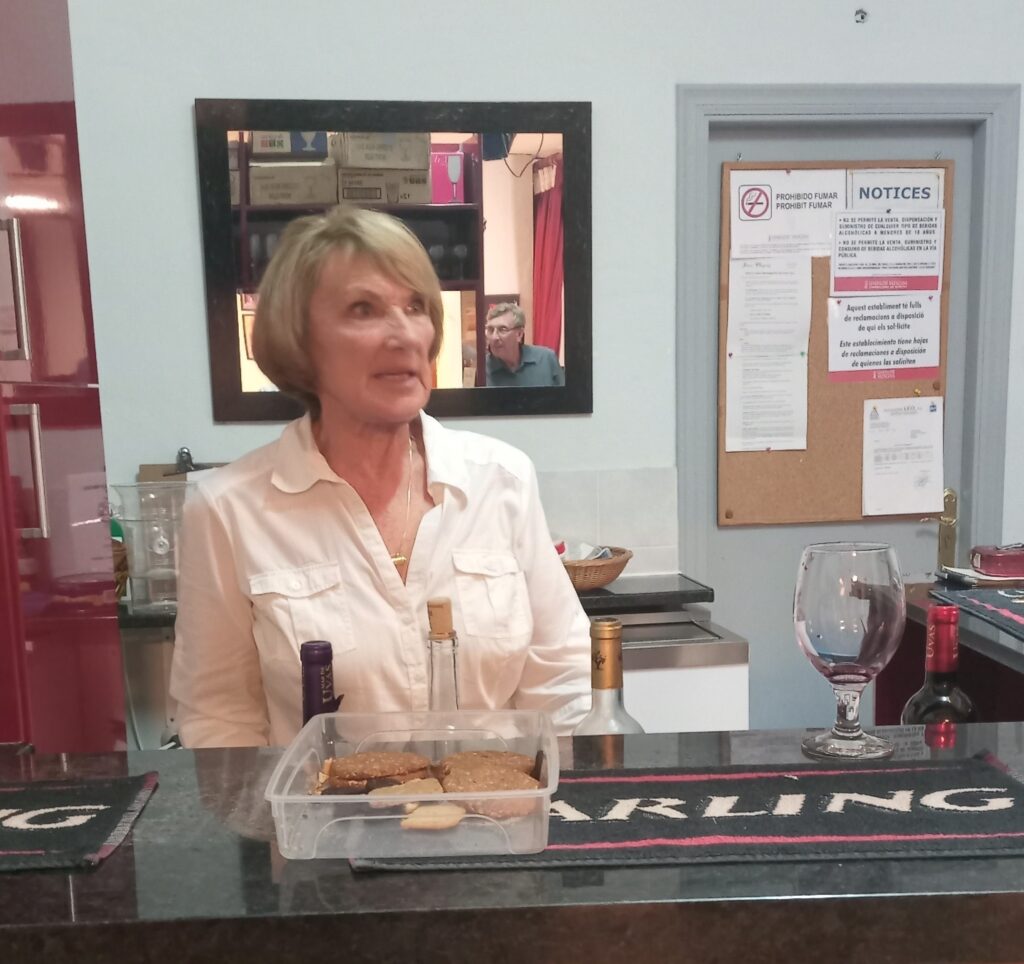
Allison presented a gift to Alan in appreciation of his presentation and invited everyone to join her in a glass of wine or beer, accompanied by the bounty bars which Alan & Bronwyn had brought for us all, and Bronwyn’s homemade version of balls of chocolate filled with coconut which were simply delicious! Angela Chantry
For further information about the group or to join the mailing list, contact group leader Allison O’Brien:
